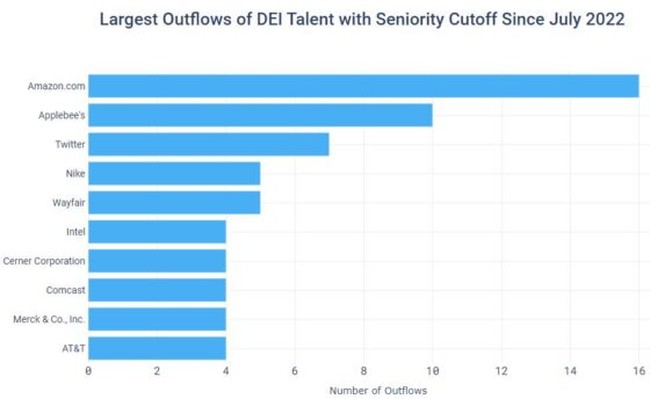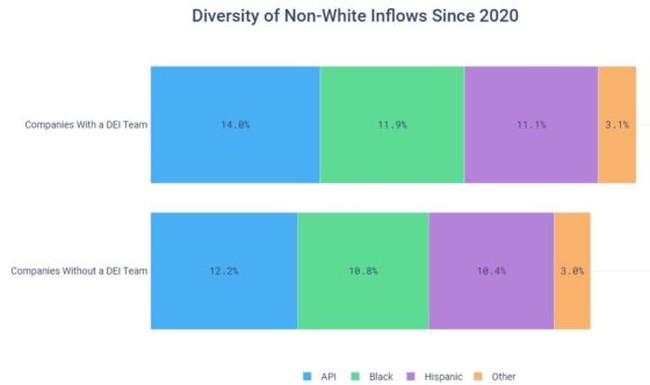In the summer of 2020 after the murder of George Floyd a lot of things happened all at once. There were protests and riots and a sudden demand for defunding the police. And corporations were desperate to signal their approval of the new narrative by hiring Diversity, Equity and Inclusion officers at a furious rate. Nearly three years later, things have changed. NBC News reports that for many corporations the DEI bloom seems to have faded and those jobs are being phased out at a rapid rate.
Diversity, equity and inclusion leaders, who were hired in waves to help companies achieve an ethnically balanced workforce after George Floyd’s murder in 2020, are being phased out, surveys indicate, leaving experts in the field concerned that corporations’ talk of affecting change was just empty words.
DEI roles increased by 55% following demands for broader racial equity and justice after Floyd’s murder, the Society for Human Resource Management reported in 2020. But instead of creating fair opportunities and a comfortable work culture for Black employees, a pair of recent reports indicate, DEI professionals are losing their jobs, as layoffs across the economy have gained momentum.
The attrition rate for DEI roles was 33% at the end of 2022, compared to 21% for non-DEI roles. Amazon, Applebees and Twitter lead the way with DEI layoffs since July 2022, according to Revelio Labs, a New York-based company that uses data to analyze workforce dynamics and trends.
Here’s a graph from Revelio Labs showing the “outflows of DEI talent” from various companies.

That x-axis is actual numbers of employees in this field, i.e. Intel has lost four senior DEI officers since last July. That doesn’t seem like a tremendous number for a company with 120,000 employees. Similarly, Amazon lost 16 DEI employees with seniority but Amazon employs more than 1.5 million people. But the drop in DEI employees at Twitter seems to be understated by this chart, though perhaps not all of them had seniority. In any case, Elon Musk fired a significant percentage of the entire staff so the losses in this area aren’t that surprising.
Revelio Labs also published this chart purportedly showing the difference made by DEI staff:

It’s striking that the group that benefited the most was Asians. In fact Asians who are already overrepresented gain 1.8% in companies with a DEI team while Black and Hispanic employees gained 1.8% combined.
In any case, it’s not a terribly significant difference for minority groups who are underrepresented. How much were these companies paying diversity officers to produce a 1.1% improvement in the hiring of black employees? Probably quite a bit. Now the professionals in this field are offering excuses for why all of those DEI hires didn’t accomplish much.
“So many of these individuals were receiving these great salaries,” [HR professional Tai] Robinson said. “But in reality, they were wearing golden handcuffs, unable to do but so much because the organization leaders didn’t want much done.”
[VP for DEI at the National Urban League Chris]Metzler agreed, adding that without support, the DEI officers are set up to fail.
“They have the title; they don’t have the authority. In some cases, they don’t have the budgets, so it’s difficult to navigate that terrain,” he said.
It’s tempting to dismiss these complaints but I suppose it’s also possible that these new employees really were just hired for show (and as insulation against future complaints) and didn’t really have much power to change things. Activists put tremendous pressure on companies to do something in the summer of 2020 in the same way the pressured cities to defund police without any real plan for public safety. Maybe the lesson here is that “do something” doesn’t usually accomplish much. If you want to make some sort of significant change you need a solid plan that relies on an actual consensus rather than just a pressure campaign from one group.








Join the conversation as a VIP Member